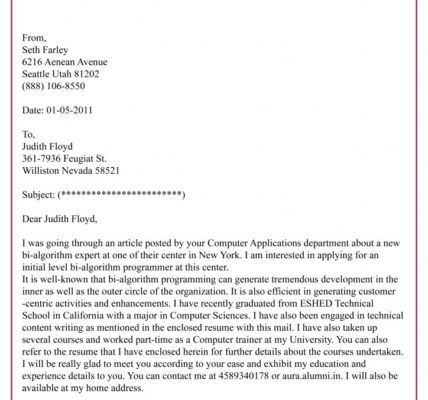Curious about business development representative salary? Well, you’re in the right place! Salaries for business development representatives can vary significantly based on experience, location, and industry. Understanding the factors influencing these salaries is crucial for both job seekers and employers. Let’s dive into the nuances of business development representative salary to gain valuable insights into this dynamic field.
Exploring Business Development Representative Salary
When considering a career as a Business Development Representative (BDR), knowing the salary prospects is crucial. The salary of a BDR can vary based on several factors, including experience, location, industry, and the specific company. Let’s delve deeper into the nuances of business development representative salaries to provide you with a comprehensive understanding of what to expect in this role.
Factors Influencing Business Development Representative Salaries
Several key factors influence the salary of a Business Development Representative. Understanding these factors can give you insight into the earning potential in this role:
Experience Level
Experience plays a significant role in determining the salary of a Business Development Representative. Entry-level BDRs typically earn less than those with several years of experience in the role. As you gain more experience and demonstrate your capabilities in generating leads and driving sales, you can negotiate higher salaries.
Geographical Location
The location of the job can also impact the salary of a Business Development Representative. Salaries tend to be higher in major cities or regions with a high cost of living. For example, BDRs working in tech hubs like San Francisco or New York City may command higher salaries compared to those working in smaller towns or regions with a lower cost of living.
Industry
The industry in which a Business Development Representative works can influence their salary. Industries that are known for high-profit margins, such as technology or finance, may offer higher salaries to BDRs compared to industries with lower profit margins.
Company Size
The size of the company can also impact the salary of a Business Development Representative. Larger companies or enterprise-level organizations typically have more resources and revenue to allocate towards employee salaries, including BDRs. Startups or small businesses may offer competitive salaries but may also provide other perks or incentives to compensate for lower base pay.
Average Business Development Representative Salaries
According to industry data and salary surveys, the average salary for a Business Development Representative in the United States falls within the range of $40,000 to $70,000 per year. However, this range can vary significantly based on the factors mentioned earlier.
Entry-Level Business Development Representative Salary
Entry-level BDRs with little to no experience can expect to earn an annual salary in the range of $35,000 to $50,000. These roles often focus on lead generation, customer outreach, and sales support.
Mid-Level Business Development Representative Salary
Mid-level BDRs with a few years of experience and a proven track record of driving sales may earn between $50,000 to $80,000 annually. These professionals are responsible for nurturing leads, managing client relationships, and contributing to revenue growth.
Senior-Level Business Development Representative Salary
Senior-level BDRs who have extensive experience, a strong network, and a history of meeting and exceeding sales targets can earn upwards of $80,000 to $100,000 or more per year. These individuals often play a strategic role in shaping the company’s growth and business development initiatives.
Additional Compensation and Benefits
In addition to base salaries, Business Development Representatives may also receive additional compensation and benefits that can enhance their total earnings. Some common forms of additional compensation include:
– Commission: BDRs may be eligible for commission or bonuses based on the number of leads generated, sales closed, or revenue generated.
– Performance Bonuses: Companies may offer performance-based bonuses to BDRs who meet or exceed their sales targets.
– Stock Options: In tech companies and startups, BDRs may receive stock options as part of their compensation package, allowing them to benefit from the company’s growth and success.
– Health Benefits: Many companies provide health insurance, dental coverage, and other benefits to their employees, including BDRs.
Salary Negotiation Tips for Business Development Representatives
Negotiating your salary as a Business Development Representative can be a crucial step in securing a competitive compensation package. Here are some tips to help you navigate the salary negotiation process effectively:
Research Market Rates
Before entering into salary negotiations, research market rates for BDRs in your industry, location, and experience level. This information can provide you with data to support your salary expectations.
Highlight Your Achievements
During negotiations, emphasize your achievements, such as meeting or exceeding sales targets, driving revenue growth, or building strong client relationships. Demonstrating your value to the company can strengthen your position in negotiating a higher salary.
Be Prepared to Discuss Benefits
In addition to salary, be prepared to discuss other benefits and perks that are important to you, such as flexible work hours, professional development opportunities, or additional vacation days. A comprehensive compensation package can include a mix of salary and benefits that meet your needs.
Practice Effective Communication
Communicate confidently during salary negotiations, clearly articulating your expectations and reasons for seeking a higher salary. Listen actively to the employer’s responses and be prepared to engage in a constructive dialogue to reach a mutually beneficial agreement.
Understanding the factors that influence Business Development Representative salaries and knowing how to navigate the salary negotiation process are essential for maximizing your earning potential in this role. By leveraging your experience, skills, and achievements, you can position yourself for a competitive salary package that reflects your contributions to the company’s growth and success.
What is a Sales & Business Development Representative (SDR & BDR Roles)
Frequently Asked Questions
What factors influence the salary of a Business Development Representative?
The salary of a Business Development Representative is influenced by various factors such as location, level of experience, industry, company size, and educational background.
How does the level of experience impact the salary of a Business Development Representative?
Typically, the more experience a Business Development Representative has, the higher their salary is likely to be. Experienced professionals with a proven track record may command higher salaries than those who are just starting in the field.
What is the average salary range for a Business Development Representative?
The average salary range for a Business Development Representative can vary depending on the factors mentioned earlier. On average, salaries can range from $40,000 to $80,000 per year, with opportunities for bonuses and commissions.
Do Business Development Representatives receive additional compensation besides their base salary?
In addition to their base salary, Business Development Representatives often have the opportunity to earn bonuses and commissions based on their performance in meeting sales targets and generating new business for the company.
How does the industry in which a Business Development Representative works affect their salary?
The industry in which a Business Development Representative works can significantly impact their salary. Industries that are highly competitive or have high-profit margins may offer higher salaries compared to others. It’s essential for professionals to research industry trends to understand potential salary ranges.
Final Thoughts
In conclusion, when considering a career as a business development representative, it is crucial to research the average business development representative salary in the industry. Understanding the earning potential can help individuals make informed decisions about pursuing this role. Companies often offer competitive compensation packages to attract top talent in this field. Stay informed about the current trends and salary benchmarks to negotiate a favorable pay package as a business development representative. Your expertise and contributions to the company’s growth should be reflected in your salary package.





